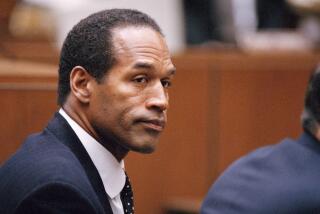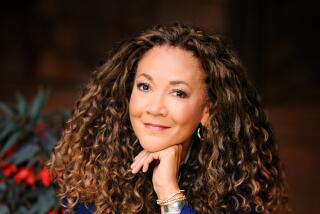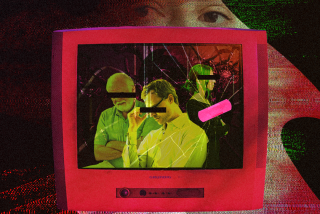Talking Out the Touchy Issue of Racial Prejudice
- Share via
On a rainy afternoon outside her elementary school yard, my 6-year-old daughter and I are sitting in the front seat of the family station wagon and we are not moving.
The final bell rang minutes ago, so we should be winding our way through the neighborhood, she gushing about the goings-on at school, me prodding her to remember more than who played with whom at recess and who shared what in front of the class. Both of us should be giddy at the prospect of a rare weekday together at home.
Instead, my daughter has just told me that she got “in trouble” at school. She told a girl who had annoyed her that she had a “black face,” and despite her pleas that she was sorry, the girl had “told.”
So this is why we are sitting here, as other mothers and their children stream by the car windows, the mothers with the umbrellas and the suspicious glances at traffic and the kids with the liberated gait that signals school is out. I have launched into a grim and lengthy explanation about right and wrong, complete with metaphor and a ‘90s rendition of the story “Some of My Best Friends Are...(fill in the blank: black, Latino, Asian, gay, disabled, and on from there).”
“What would you do if my skin turned black?” I ask.
“I’d still love you ‘cause you’re my mom,” my daughter says, sobbing now.
So maybe my daughter and I are moving, in one sense. We have covered, but clearly not conquered, this ground before.
My husband and I came down on our daughter pretty hard. But we punished and we enlightened. That is, we hope.
And we were glad for one thing at least. Our daughter volunteered, unprodded, that she had done something wrong. This took courage, and it gave us the opportunity to talk.
I bring up this incident to make a point in this time of uncertainty and mistrust having to do, in a real and metaphorical sense, with a man named Rodney King.
We are missing, or avoiding, too many opportunities to talk about the increasingly uncomfortable subject of race.
Is it because we have become too scared of starting something, or of being misunderstood? Or is it a sad resignation that we are beyond that now?
Not too long ago, the Black-Korean Alliance, the oldest organization in Los Angeles dedicated to easing tensions between the two ethnic groups, disbanded because its members decided that its focus on talking just wasn’t enough.
The alliance of about 30 community groups was formed six years ago with the help of the Los Angeles County Human Relations Commission. But in the long wake of last year’s riots, the group voted to disband.
“Problems of racism, hopelessness and despair are bigger than what the (alliance) was about,” one member said.
True, other groups are talking, here and there. Just like my daughter, people of all colors are learning little lessons about humanity everyday.
Some particularly good-news stories stick in my mind. A judge ruled in Texas to allow a white couple to adopt the 3-year-old black foster child, and crack baby, whom they had raised from birth.
And a white man dying of AIDS in San Francisco bequeathed a college fund to a black youngster he had seen on TV. The boy had impressed this man with his vision and hope.
But then the more sodden side of inter-racial reality hits. This is the stuff of everyday, at the gas station, in the parking lot, in neighborhoods that are not one’s own. Increasingly, everybody’s guard is up.
I suppose the next big pulse-taking of our racial tolerance level will come after a jury in Los Angeles decides whether four white policemen who beat Rodney King violated this black man’s civil rights.
Or at least that’s the basis for the current wary calm, in Los Angeles and other big cities where races mix. It’s wait and see, to a degree.
Still, I’ve heard of several people who are planning to be “out of town” when the jury’s verdict comes down, and law enforcement has been making a big show about being prepared.
A photo op was called last month to watch 600 National Guard troops exercise their riot control prowess at strategic locations across L.A., and the LAPD drills at Dodger Stadium now.
All of which is to be expected, of course. Messages must be sent that the wanton violence that followed in the wake of the last Rodney King trial hurt us all.
This time we all know the drill.
But we are still scared, if not of violence itself, then of the legacy that it may leave. Talking may just be a first step toward bettering racial understanding but so far, it’s the only entree that we’ve got.
More to Read
Sign up for Essential California
The most important California stories and recommendations in your inbox every morning.
You may occasionally receive promotional content from the Los Angeles Times.













